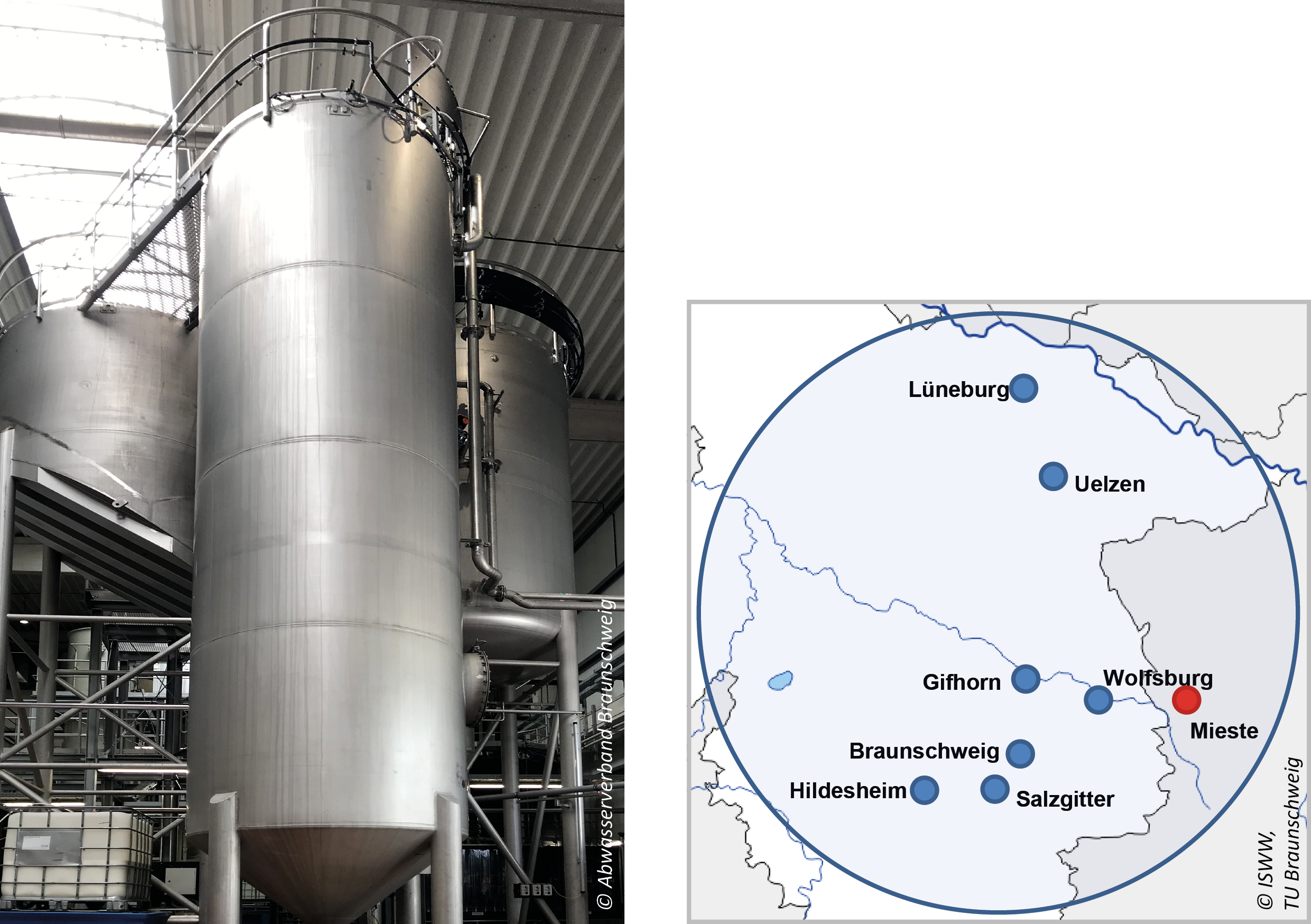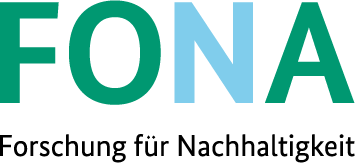Coordination
Technische Universität Carolo-Wilhelmina zu Braunschweig
Institut für Siedlungswasserwirtschaft (ISWW)
Pockelsstr. 2a
38106 Braunschweig
Project management
Prof. Dr.-Ing. habil. Thomas Dockhorn
Tel. +49 531 391-7937
t.dockhorn@tu-braunschweig.de
Partner institutions
- ISOE – Institut für sozial-ökologische Forschung GmbH
- Julius-Kühn-Institut, Institut für Pflanzenbau und Bodenkunde (JKI)
- Abwasserverband Braunschweig (AVB)
- Stadtentwässerung Braunschweig GmbH (SE|BS)
- Abwasser- und Straßenreinigungsbetrieb Stadt Gifhorn (ASG)
- PFI-Planungsgemeinschaft GmbH & Co. KG
- SF-Soepenberg GmbH
Funding period
01.07.2020 – 30.06.2025
Webseite
Projekt sheet
P-Net
Establishing a network for resource-efficient phosphorus recycling and management in the region “Harz and Heide”, in Northern Germany

Abstract
The main objective of the P-Net project is to address the problems and open questions of the production and utilization of P recyclates in the form of struvite. The impetus provided by the amendment to the Sewage Sludge Ordinance is to be used as a driver for struvite plants.
The overall goal of P-Net is to establish a regional cluster for P recycling that focuses on P recyclates that are already being produced today and are considered high quality fertilizers, but have not yet found their way into the market.
Furthermore, P-Net wants to offer process engineering solutions to optimize already existing struvite plants for P-recovery to such an extent that they can also fulfill the high recycling quotas of the amended Sewage Sludge Ordinance in the future in an economical mode of operation.
By establishing a struvite network, P-Net intends to continue to contribute to establishing the further developed and optimized promising processes and measures for upgrading the struvite line at other locations in the national and international market.
Objectives
P-Net’s primary project objectives are as follows:
- Addressing and working on the problems and open questions of the production of P-recyclates in the form of struvite.
- Converting the impetus provided by the amendment to the Sewage Sludge Ordinance into a driver for struvite plants in particular.
- Establishment of a regional cluster for P recycling, based on the P recyclates already produced today that have not yet found their way back into the market.
- Optimization of existing struvite plants so that in the future they will also meet the requirements of the amended Sewage Sludge Ordinance in an economical mode of operation.
- Further development and optimization of the promising processes and measures investigated within the framework of P-Net in order to establish them on the national and international market.
Focus of Work
- Identify and eliminate existing process limitations of the struvite plants
- Establishment of a struvite hub in the region for regionally specific struvite fertilizers
- Identify barriers and develop necessary institutional arrangements
- Establish regional and European exchange and knowledge transfer with regard to the struvite line
- Develop recommendations for action
Work Packages
Contact
Prof. Dr.-Ing. habil. Thomas Dockhorn, Institut für Siedlungswasserwirtschaft, Technische Universität Braunschweig, Pockelsstr. 2a, 38106 Braunschweig, E-Mail: t.dockhorn@tu-braunschweig.de
Projekt partners
ASG; AVB; JKI; PFI; SE|BS; Soepenberg
Abstract
Based on a technology description of the processes to be investigated, investigations are to be carried out for further optimization of the process technology on a pilot scale as well as in large-scale technology. The aim is to improve the processes to such an extent that in future it will also be possible to achieve P recycling quotas via the struvite route in accordance with the amended Sewage Sludge Ordinance. Furthermore, the suitability of the struvite route for the treatment of other material flows (e.g., the possibility of connecting novel sanitary systems) is to be investigated, and the technology matrix and the P-Net cluster are to be expanded.
Contact
PD Dr. Joachim Clemens, SF-Soepenberg GmbH, Emil-Fischer-Straße 14, 46569 Hünxe, E-Mail: j.clemens@soepenberg.com
Projekt partners
SOEP; ISWW; ISOE; JKI; AVB; SE|BS; ASG; PFI
Abstract
The aim of this WP is to produce regionally specific struvite fertilizers in a struvite hub. TThese will be agronomically evaluated with the aid of on-farm trials and exact tests and introduced into the region for marketing by means of a real world laboratory.
Contact
Dr. Martina Winker, ISOE – Institut für sozial-ökologische Forschung, Hamburger Allee 45, 60489 Frankfurt am Main, E-Mail: winker@isoe.de
Projekt partners
ASG; AVB; ISWW; PFI; SE|BS; Soepenberg
Abstract
For the establishment of a regional phosphorus fertilizer in agriculture, the existing institutions and actor relations are analyzed. Based on this, the necessary regional anchoring of P recycling and P management activities will be addressed with the regional actors via network activities.
Contact
Dr. Martin Zimmermann, ISOE – Institut für sozial-ökologische Forschung, Hamburger Allee 45, 60489 Frankfurt am Main, E-Mail: zimmermann@isoe.de
Projekt partners
ASG; AVB; ISWW; JKI; PFI; SE|BS; Soepenberg
Abstract
Regional and international struvite workshops will be used for exchange and knowledge transfer. In addition, material flow analyses and participatory scenario development will be used to develop various future scenarios and underpin them with recommendations for action.
Contact
Prof. Dr.-Ing. habil. Thomas Dockhorn, Institut für Siedlungswasserwirtschaft, Technische Universität Braunschweig, Pockelsstr. 2a, 38106 Braunschweig, E-Mail: t.dockhorn@tu-braunschweig.de
Projekt partners
AVB; ISOE; JKI; SE|BS, SOEP
Abstract
In addition to the project coordination and management, the WP mainly includes the public relations and knowledge communication of the network, which focuses on a target group-oriented information and knowledge preparation and provision in addition to the wide range of relevant stakeholder groups (including in the sectors of agriculture and wastewater management, the public, national and international experts).
Ways of exploitation
The exploitation of the results is based on the activities in the work packages “Generalization” (WP 4) and “Coordination and Project Management” (WP 5). In addition, there is a supporting knowledge transfer via the P-Net network. Especially via the national and international workshops with other plant operators and stakeholders in the field of struvite, the exploitation of results is actively shaped. In addition, there are the activities from knowledge communication and public relations.
In addition, the struvites produced within the P-Net network will be further developed into standardized struvite fertilizers via the established struvite hub and marketed and distributed into the agricultural fertilizer market.

